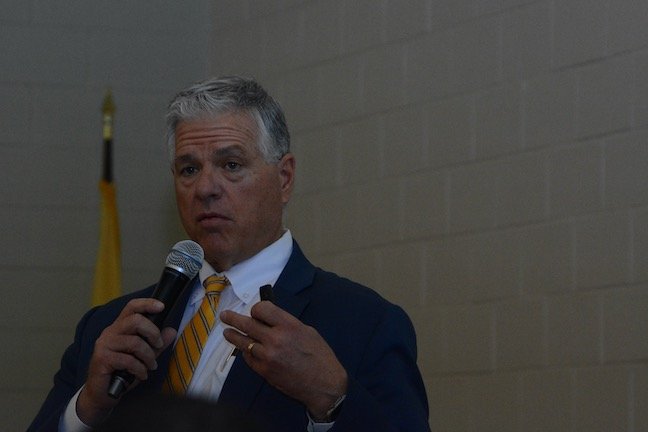
A steep cut in state aid and a multi-million dollar increase in charter school tuition presented stiff challenges, but school district officials said the proposed 2024-25 budget should only result in a minor increase in the school portion of township property tax bills.
Schools Superintendent John Ravally said the tax rate should be what he called “stable,” meaning it should not cost the owner of a home assessed at the township’s average rate more than $100 for the year.
The Board of Education on March 20 approved the district’s preliminary 2024-25 spending plan, which now goes to the Somerset County Executive Superintendent for review and approval.
The preliminary budget’s total $194,074,956 general fund is powered by a $162,114,985 tax levy, a 2.7 percent increase from the current year.
Among the “challenges” enunciated by Ravally during the budget presentation were a decrease in state aid of about $400,000 and a 12 percent increase in charter school tuition.
“That’s a big number for us,” he said. “That’s about $3.2 million.”
“So when we talk about a limit of 2 percent growth on a tax levy, that eats up 75 percent of that before we even do anything else,” he said. “That’s a big challenge for us.”
Other challenges, Ravally said, were a health care cost increase of more than 10 percent and anticipated increases in transportation costs.
The district is currently bidding out the transportation contracts, so a final cost was not available.
For the presentation, Ravally aligned expenditures with the district’s goals. Those items and their price tags are:
- Support district initiatives that ensure the physical and mental well-being and safety of students and staff, for a total of $1,018,250.
- Support the expansion of Pre-K-12 specialized programs, for a total of $2,217,500.
- Support the continued professional development of staff consistent with the district’s equity goals, especially in the area of culturally and linguistically responsive instruction, technology and content specialization, for $150,000.
- Foster, encourage and expand relationships with the community at large for $122,000.
Another goal, to promote sustainability and decrease energy consumption, was primarily being reached through the district’s solar panel program, Ravally said.
He said the district’s revenue form solar panel stock sales was $85,000 yearly, while the electrical cost savings amounted to about $83,000 yearly.
Among the larger projects being undertaken through this budget is the addition of 85 Pre-K seats, at a cost of $1,350,000. The program is grant-funded, but the money must be accounted for in the budget.
The budget also provides $265,000 for an expansion of the elementary school Autism program, $150,000 for World Language programs, $110, for an expansion of bilingual programs, and $220,000 for new teachers.
The district is scheduled to approve the final budget at its April 25 meeting.
 The Franklin Reporter & Advocate Eight Villages, One Community
The Franklin Reporter & Advocate Eight Villages, One Community

